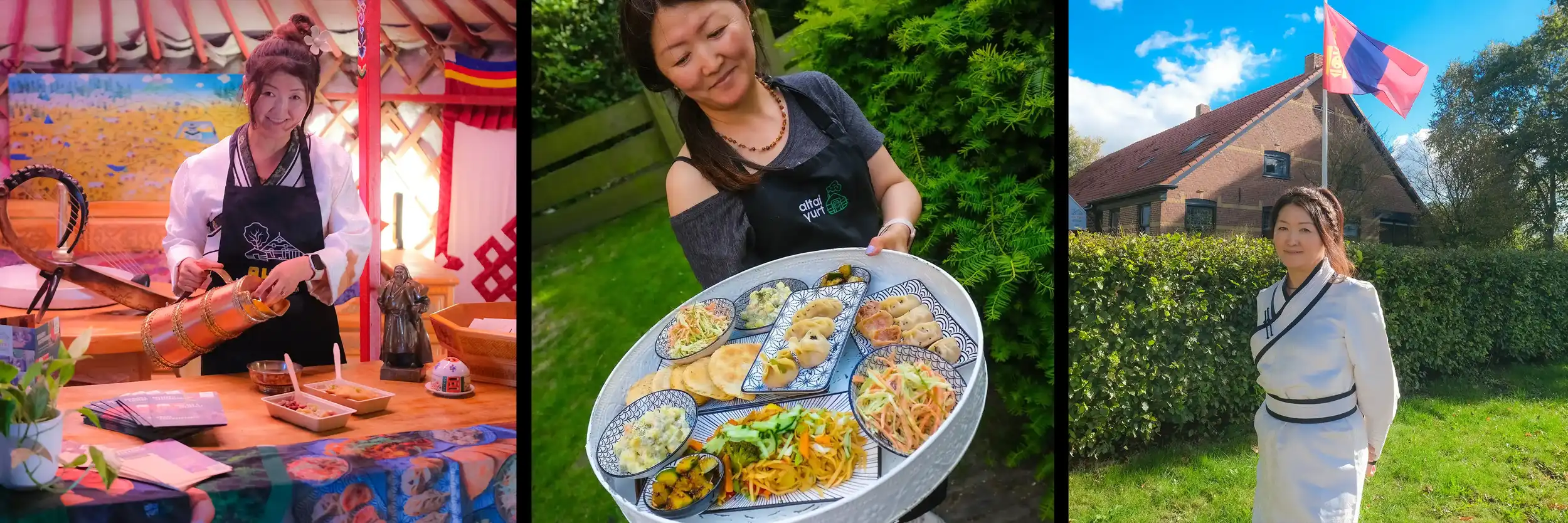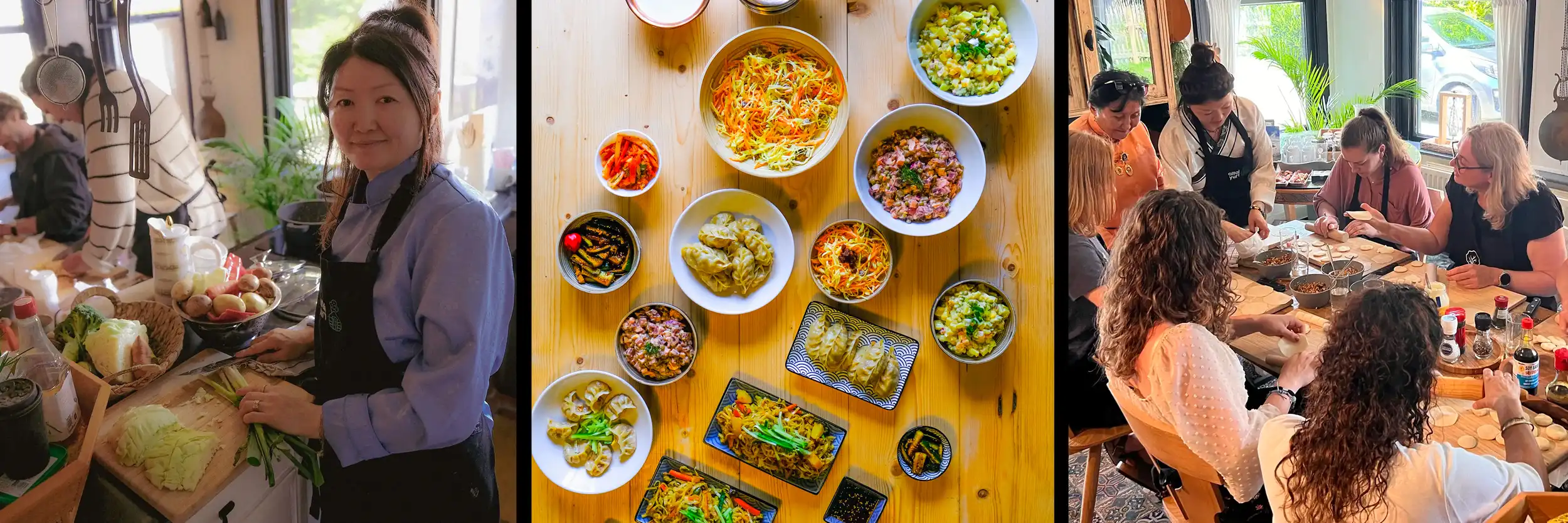In short: Why We Cook Vegan & Plant-Based
For over ten years now, my wife and I have been eating and cooking almost entirely vegan. Always 100% vegetarian, and as plant-based as possible.
Our Mongolian dishes? They are all plant-based versions of traditional recipes. Dumplings, soups, stews — even the well-known salted butter milk tea — lovingly and creatively reimagined.
But did you know this?
Traditionally, Mongolian nomads ate mostly vegetarian during the summer months. Not because of modern beliefs, but simply because it made sense.
In the warm season, meat spoils quickly and is hard to keep fresh. On top of that, mother animals are producing plenty of milk. If you were to slaughter animals, you’d have fewer dairy products. Nomadic herders lived in a thoughtful balance with their animals: the young could drink until they were full, and only the surplus milk was used by humans.
In these warmer months, they also foraged berries, fruits, seeds, grains, and vegetables — everything nature offered during the vibrant season.

Winter in Mongolia is a different story.
Long, dry, and extremely cold — temperatures of -40°C are not unusual. In such conditions, the body craves fat and energy. Animal flesh provides a quick and efficient source of calories. And since everything freezes instantly outdoors, it’s easy to preserve. Nature itself became a freezer!
So yes, eating flesh has long been part of Mongolian tradition — but vegetarian eating has too, especially in the seasonal context.
But that context is changing…
Modern Mongolia is changing rapidly. Due to climate change, overgrazing, and desertification, the land is being depleted. Where herders once kept small flocks, there are now millions of animals. Sheep, goats, horses, yaks, camels — beautiful to see, but in such numbers, they literally eat the land bare.
Grasslands are disappearing. Small trees, bushes, even tiny sprouts are eaten before they can grow. What remains is drought. And when the rains finally come, they often lead to devastating floods — because the dried-out, compacted soil can’t absorb the water, causing it to run off instantly. Sadly, we see this happen every year in various parts of Mongolia.
Painful, but there is hope.
A growing movement around plant-based eating is emerging in Mongolia. The first initiatives for greenhouses, local vegetable cultivation, and sustainable techniques are taking root. It’s still in development, but slowly new possibilities are arising — making it easier to cook and eat in ways that are kinder to the land.
More and more entrepreneurs in Mongolia are embracing these opportunities. And young people from the new generation are starting to eat vegan. Yes — even in Mongolia, a vibrant vegan community is growing!

Will Mongolia become vegan overnight? Of course not. Neither will the Netherlands. But I believe that animal product consumption will decline with each generation. Not because people are rejecting their culture, but because they are reimagining tradition — in ways that honor life: human, animal, and nature.
Because “culture” or “tradition” should never be used as an excuse for harm. Culture is alive — it can grow, evolve, and move with the times.
So yes, our dumplings are plant-based. Our milk tea contains no animal milk. And our table is filled with compassion, flavor, and heritage — with deep respect for the past and a clear view toward the future.
Everyone is warmly welcome at our table.
Warm regards,
Rowan & Saran



